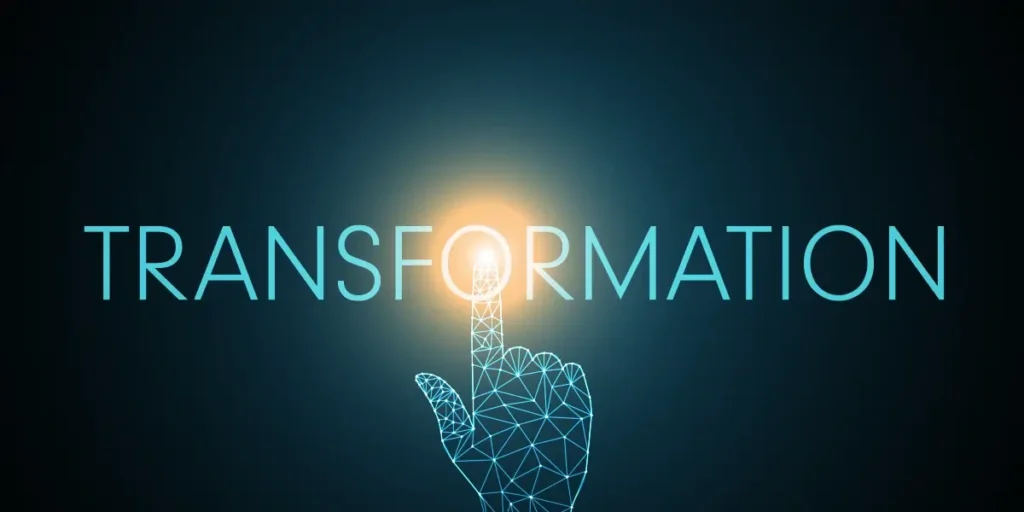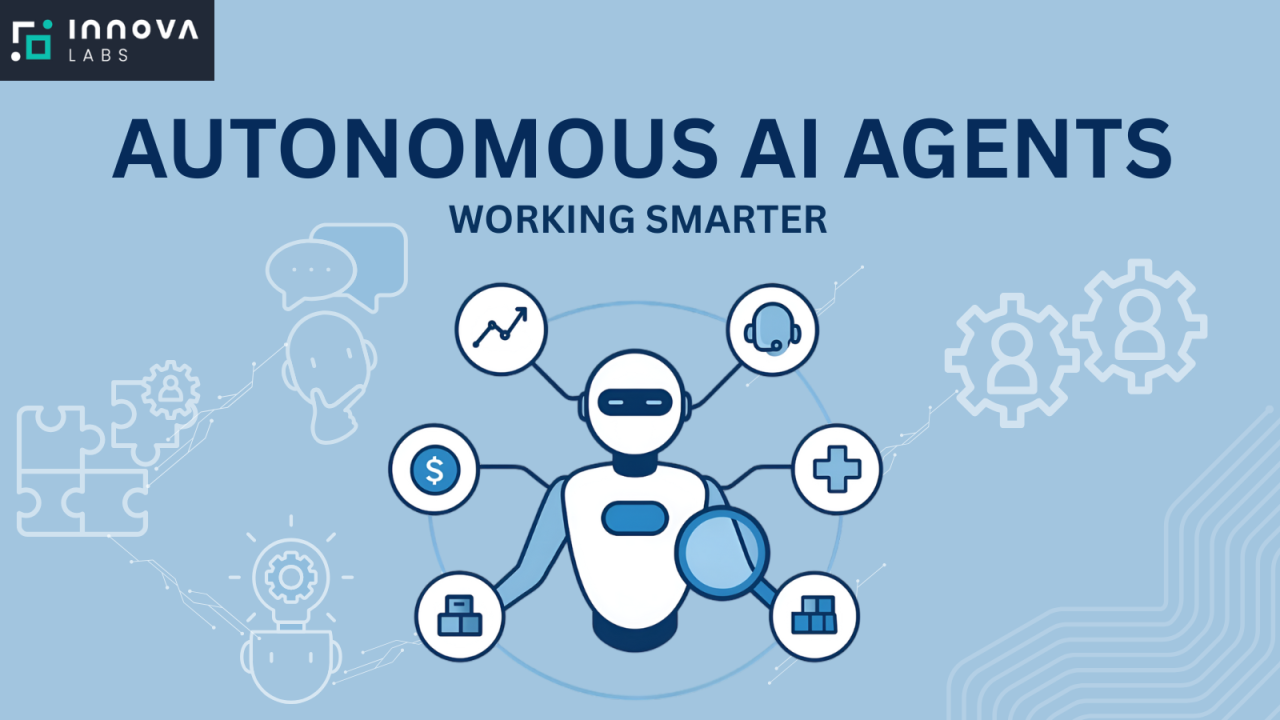AI in Customer Experience: From Chatbox to Full-Service Agents
Introduction:
The New dawn of Customer Experience The customer expectations have changed aggressively within the past decade. Customers demand speedy reply, attention to details, and round-the-clock services. Traditional customer support teams have failed to pace up. That is where artificial intelligence (AI) has come into play or rather more appropriately, to revolutionise the ways in which companies do business to their customers. In every aspect, whether it is a basic Chatbot to an AI agent that can take up complicated problems, AI has become the centre of the contemporary customer experience. This article addresses AI transformation of customer service, its technologies, real-life examples and the future.
Evolution of AI in Customer service
Customer service AI did not come all of a sudden. So how did it change? Let us see:
1. The Emergence of the Rule-Based Chatbots Chatbots were first rule-based and driven by a script. These bots would only respond to few questions. They were trained to have programmable logic of the likes of: What are you working hours? What do I do to change my password? “Whats your returns policy?” They were only useful in low-level tasks but they were fast to hit a limit. When the user asked something not encompassed by the script, the bot would lose its course and redirect the conversation to a human agent.
2. Natural Language Processing (NLP) Comes In Picture As soon as Natural Language Processing (NLP) was developed, bots began to become more intelligent. They could now interpret normal language, context and even intention. This gave them the freedom to contend with a broad assortment of customer requests without sounding programmed. It was made possible to have AI respond more human-like through platforms such as Dialogflow, IBM Watson and more recently OpenAI GPT models.
3. Support to Engagement The current AI agents do not merely respond to questions. They are aiding the customers to make decisions, make purchasing and booking appointments and even make forecasts on what the customer may come in need again. AI is no longer a supplement to customer journey but is now part of the customer journey.
Best Technologies used to drive AI Customer Experience
These are the key technologies that will bring this change:
1. NLU natural language understanding In other words, NLU enables AI to read into meaning behind the messages sent by customers- and not merely the words. To give an illustration, when a person writes that he is fed up, and that the app does not work, the NLU will assist the bot to understand that it is a technical support case, with an element of frustration waves. That background is crucial.
2. Machine Learning (ML) ML enables AI systems to acquire knowledge in their prior interactions. When hundreds of users inquire about slow shipping the system should be able to detect such a pattern and itself give an update or a solution.
3. Voice AI and Speech Recognition With the help of such tools as Google Assistant, Amazon Alexa, and Siri, the voice AI has become the mainstream. Voice bots have now become human sounding and are capable of responding as it happens in many customer service centers.
4. Sentiment Analysis AI can detect a tone and mood of a customer. When a person is angry, the system will enable him/her to go to a human agent or modify its responses to pacify the situation.
5. Generative AI (e.g. GPT) Such generative AI models as GPT-4 are able to produce high quality responses in real time. Such models are being run through huge piles of customer data to give personalized, smart responses. Indeed some companies utilise them in drafting up emails, summaries or even replies to complaints.
AI in Customer Experience- Real-World Applications
So, what is AI helping various industries to impress their customers? Let us see.
1. E-commerce and Retail The roles that AI agents may play is processing product requests, suggesting the products according to customer behavior, or even checkout assistance.
Example: One of the customers of an online shop is searching to buy running shoes. The AI assistant proposes solutions by taking into account purchases in the past, the size you prefer to use and the money you would like to spend. It also describes the policy of returning goods and shipping schedule in real-time.
2. Banking and Finance With AI chatbots, banks assist customers to know the balances, report about lost cards, take loans, or learn about charges.
Example: A user does not make an outgoing call to the customer support center and asks, Why was 500 rupees debited in my account yesterday? Alternatively, the user opens the app of the bank and writes, Why 500 rupees were debited in my account yesterday? To answer the request, the AI provides a specific report of transactions and assists when it appears suspicious.
3. Travel and Hospitality AI assists in flight bookings, scheduling the reservations, destination suggestions, and even upgrading the services.
Example: A journey booking bot can state, “You are planning to visit Paris in winter, do you need to book a hotel with an internal heating system and a free breakfast?”
4. Telecommunications Billing, network complaints, or plan modification is done by AI bots.
Example: One of the customers writes, why is my internet so slow? The machine will scan the geographical position of the customer and identify a network problem and give an ETA on solving this. No queues on hold
5. Healthcare AI assistants assist patients in scheduling an appointment, checking symptoms, and viewing lab reports.
Example: The enter the text, I am having sore throat and fever. What shall I do?” The AI responds with the suspected causes and offers them a chance of booking a doctor appointment or discussing the issue with a specialist.
Advantages of AI Customer Service
What is making a lot of companies invest in AI-based customer experiences? The prominent benefits are the following:
1. Around the clock availability AI does not sleep unlike the human agent. Customers are able to get support at any time (day or night).
2. Immediate Response Speed Artificial intelligence can process thousands of requests simultaneously and will never make a person wait.
3. Cost Savings AI minimizes the number of support teams, particularly those that are repetitive. This helps companies save a lot of money in the long run.
4. Personalized Experiences AI has the potential to save your previous query, favourite, and pattern ofestablishing unique responses.
5. Scalability AI can be scaled up to 1,000 or 1 million customers without additional efforts.
Possible Constraints and Difficulties
Even though it is a powerful tool, the AI customer service is not flawless.
This is a list of some of the limitations:
1. Deficiency of Human Emotion Advanced AI may not actually put itself in another person shoes and empathize like it happens in the case of a human being. This is the disadvantage during emotional/sensitive situations.
2. Misinterpretation of the Complex Queries Some misrepresentations of intent include the use of slang, sarcasm, or multi-layered questions to which AI may lack comprehension.
3. Privacy and Security of Data Collection of customer data has legal and ethical obligations. Badly structured AI may cause data risks.
4. Dependency on AI to a totally extreme degree Other organizations have gone wrong in removing human agents completely, which leads to frustrations when a user complains of a problem that they do not know how to solve.
Full-service AI Agents on the Rise The latest trend is to autonomous
full-service AI agents, or AI that can not only chat, but also do complete end-to-end tasks with no human intervention.
What can these agents do?
Be aware of what the customer wants (such as to upgrade his/her phone plan) Log on to backend system Upgrade the applications (you can hire someone to do it) Confirmation should be sent Make some follow up after a couple of days Basically, they play a role similar to that of digital employees.
Real Examples
- Auto-GPT-like systems are being conditioned to devise and do multi-step tasks.
- ServiceNow and Zendesk are developing AI agents that can address a ticket end-to-end.
- Microsoft Copilot will be implementing AI agents into Office and Teams to support employees, as well as customers.
These are not ordinary chatbots. They are able full service agents.
What the Future Will Be Like
1. Voice and AI and AR/VR-Soon you may speak with a virtual assistant in a VR shopping center where you will be trying all the items of clothing you need to buy.
2. Hyper-Personalization-AI will be able to understand not only your shopping record, but your tone, mood, preferences, and even your surfing history Spanish Tone, what results in hyper-customized experiences.
3. Augmented + AI Ecosystem-AI will not substitute human agents, but it will enable them. To take an example, AI will act by summarizing previous interactions, making suggestions and form-filling forms so that the human agents do not have to deal with empathy and resolution.
4. Multi-Platform Multi-Lingual Service-AI will allow you to have an interactive real-time multilingual, cross-application, and cross-device chat at any given time regardless of the geographical location of your customers.
Final Thoughts
AI does not come to replace the customer service but to make it even better. AI is changing the game of connecting businesses with customers ranging from catchall rule-based bots to full-service agents. AI provides businesses with an advantage in an increasingly fast-paced world where it is all about speed, convenience, and personal analyses. However, businesses that can use the speed of AI and add the element of human empathy earn the best results. Customer experience of the future is not human or machine. Both of them – working together.
Short FAQs:
1.What is AI in customer experience?
Creating customer interaction using AI to enhance its business interactions.
What is the difference between chatbots and full-service agents?
Chatbots provide simple responses, full-service agents deal with an entire task.
What industries are there in customer service AI?
Retail, banking, telecom, travel and healthcare.
Is it possible that AI could substitute human agents?
Not fully. It cannot work without human assistance.
Is AI data safe with customers?
Yup, under the condition of observing the rules of security and privacy.
What does AI mean to personalize the service?
Through using customer history and preferences.
Who do people want to deal with AI or human?
AI can serve as a fast fix; Human beings can serve on more complicated problems.
What do AI in support risks possess?
Mistakes, misuse of data and unsatisfactory user experience when not implemented properly.
What are the steps of adopting AI-customer service?
Start with chatbots, before reaching more intelligent agents.
What will be AI in CX?
Intelligent, quicker, more individual customer care.






